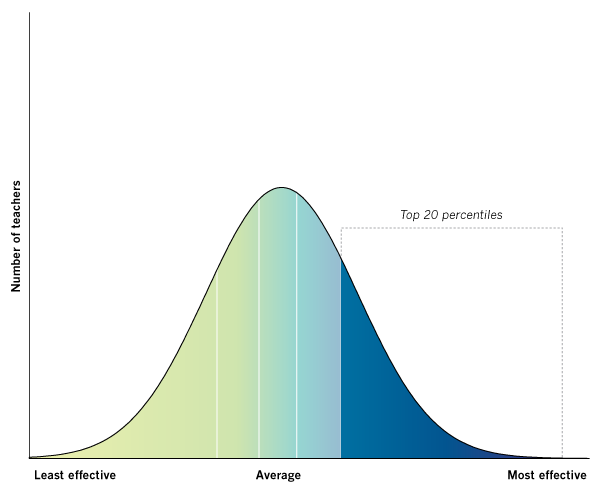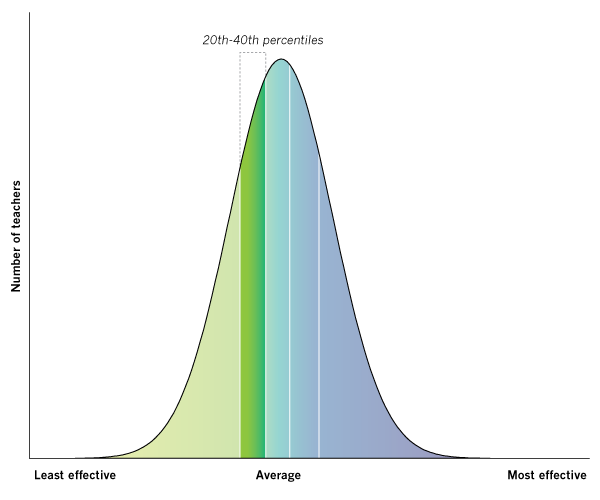Mitchell Wayne Jacobs
A 4th grade teacher at Marquez Avenue Elementary in 2009
These graphs show a teacher's "value-added" rating based on his or her students' progress on the California Standards Tests in math and English. The Times’ analysis used all valid student scores available for this teacher from the 2002-03 through 2008-09 academic years. The value-added scores reflect a teacher's effectiveness at raising standardized test scores and, as such, capture only one aspect of a teacher's work.
Compared with other Los Angeles Unified teachers on the value-added measure of test score improvement, Jacobs ranked:
- More effective than average overall.
- Most effective in math. Students of teachers in this category, on average, gained about 11 percentile points on the California Standards Test compared with other students at their grade level.
- Less effective than average in English. Students of teachers in this category, on average, lost about 3 percentile points on the California Standards Test compared with other students at their grade level.
Jacobs' LAUSD teaching history
2002-03 through 2008-09 academic years
- Marquez Avenue Elementary, 2009 - 2007
- Walgrove Avenue Elementary, 2006
Mitchell Jacobs's Response:

Even ending up with a overall more effective I question the Times publication of this material. There are many reasons why this database is not right:
1) The students in elementary schools do not have a stake in their test scores. Half the job of getting better test scores is getting students to try their best when the test is not important to them.
2) Students are not assigned randomly and by publishing these scores you are encouraging teachers to do their best to avoid teaching students who have Individual Education Plans for learning disabilities because they will hurt the teacher's scores. These students need the best teachers but this database becomes a major incentive to try and avoid such students. Instead of being rewarded for teaching the most challenging students there is an incentive to not teach these students.
3) I also question the effectiveness of this database when a teacher has to change grades nearly every year. There are many more reasons but I lack space to detail them.
![]() The Times gave LAUSD elementary school teachers rated in this database the opportunity to preview their value-added evaluations and publicly respond. Some issues raised by teachers may be addressed in the FAQ. Teachers who have not commented may do so by contacting The Times.
The Times gave LAUSD elementary school teachers rated in this database the opportunity to preview their value-added evaluations and publicly respond. Some issues raised by teachers may be addressed in the FAQ. Teachers who have not commented may do so by contacting The Times.
|
|
 Delicious
Delicious
|
 Digg
Digg
|
 Facebook
Facebook
|
 Twitter
Twitter
|









